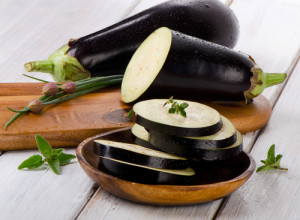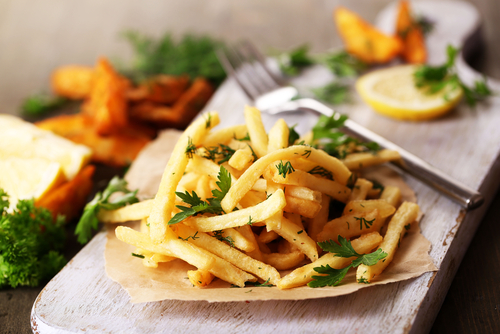Arthritis is a painful condition that is typically associated with aching, stiffness and swelling around one or more joints. Some arthritis conditions can also involve certain internal organs and the immune system. RA and lupus are common forms of arthritis that can affect multiple organs in the body and cause widespread symptoms.
Although arthritis is more common in individuals aged 65 years and older, people of every age, even young children, can suffer from the condition.
Millions of Americans Suffer from Arthritis
According to the Centers for Disease Control (CDC) 52.5 million adults in the United States are currently afflicted with some form of arthritis, gout, lupus, rheumatoid arthritis or fibromyalgia. And, because people are living longer, the incidences of this disease are expected to increase. In fact, by the year 2030 it has been estimated that 25% of the American population, that’s 67 million people, will have doctor-diagnosed arthritis.
Arthritis is typically seen more in adult women (23.9%) than in men (18.6%), though it is estimated that over 290,000 children under the age of 18 are afflicted with some form of the condition. This amounts to 1 out of every 250 children currently living in the United States.
What Exactly Causes Arthritis?
Because there are so many forms of arthritis, there is not one single cause for all of them. Instead, there are myriad potential causes depending on the particular condition.
- Certain injuries can lead to what is called degenerative arthritis. This type of arthritis can commonly be seen in former athletes.
- It is believed that gout and pseudogout are caused by an abnormal metabolism.
- Certain forms such as osteoarthritis are genetic in nature.
- Certain infections, such as Lyme disease, may also cause arthritis.
- An overactive immune system can cause RA and SLE.
For most forms of arthritis there is actually a combination of many factors all working together. For instance, an individual may simply be more likely to develop certain conditions because of their genetic makeup. This same person then, being more susceptible, will be more easily affected by external influences such as infection, smoking, and injury.
Many forms of arthritis, such as osteoarthritis, are caused from wear and tear on the cartilage tissue in the joints. This flexible, connective tissue is there to absorb shock and pressure from stressful movement like walking and running and bending at the knee. Cartilage allows for smooth movement and is necessary to protect your joints.
RA is caused when your body’s immune system attacks the tissues such as cartilage.
As you can see, there are many different causes of arthritis, so while it may be difficult to pinpoint exactly where your condition came from, there are things every arthritis sufferer can do to help alleviate painful symptoms.
Watch What You Eat
There are certain foods and additives that are known to exacerbate joint and muscle pain associated with arthritis, gout and fibromyalgia. Avoiding these 11 foods will help to reduce inflammation and alleviate pain and stiffness, and in turn increase a person’s mobility and improve their mental outlook.
You may see foods on this list that are some of your favorites and think there’s no way you can give them up. But keep in mind these foods are causing you debilitating pain, so just how enjoyable are they really?
- Processed and Fried Foods
Some of the unhealthiest foods any of us can eat are those that are fried and processed. These foods are notorious for causing inflammation in the body, which is something people afflicted with arthritis want to avoid. Researchers at the Mount Sinai School of medicine studied how diet informs disease prevention. What they found was that “cutting back on the consumption of fried and processed foods, such as fried meats and prepared frozen meals, can reduce inflammation and actually help restore the body’s natural defenses.”
So, if you haven’t done so already, cut out all processed and fried foods and instead fill up on whole foods, making sure to eat plenty of fruits and vegetables.
- Decrease Your AGEs
No this has nothing to do with the fountain of youth. AGE stands for advanced glycation end product. This is a nasty little toxin that is released when foods are heated, fried, grilled or pasteurized. AGEs damage specific kinds of protein in the body. The body in turn tries to break these toxins apart by using cytokines, but these cytokines are inflammatory messengers. Should these AGEs be located in joints and muscles, the resulting inflammation can result in arthritis.
- Purine-laden Proteins
The main cause of gout is too much uric acid in the body. Uric acid is formed when purines, which are the byproduct of protein digestion, are broken down. Though all proteins will produce some amount of purines, there are certain types of proteins that are more likely to cause a gout flare.
If you suffer from arthritis or gout you should avoid red meats, organ meat such as liver, and shellfish, and instead consume lean organic poultry and fresh fish or vegetable-based proteins.
- Wheat and Gluten
Although many people are aware that wheat and gluten are culprits of certain diseases such as Crohn’s and celiac disease, not everyone realizes they can also cause flare-ups in those with arthritis and fibromyalgia. Wheat and gluten can be particularly detrimental when consumed in a highly processed form, such as white flour. If you suffer from arthritis symptoms, you are encouraged to eat a gluten-free diet.
Luckily you can find many delicious gluten-free products on the market, and even many restaurants are now offering gluten-free menus.
- Coffee and Other Caffeinated Beverages
America is a country that runs on coffee. In fact, surveys have found that 54% of Americans over the age of 18 drink coffee every day, with the average consumption being more than three cups according to the National Coffee Association. Many of those that don’t drink coffee drink tea instead; and still others that drink neither will consume sodas that also contain caffeine.
The exact health effects of caffeine are still being studied, especially as they pertain to rheumatoid arthritis. What has been determined at this point is that drinking coffee seems to have an effect on the development of anti-CCP positive RA, which is a specific subtype of RA. Though more research will have to be done before definitive conclusions are reached, you may want to start saying no to that cup of joe.
- Sugars & Refined Carbs
 As we mentioned a little while ago, AGEs in the body can result in inflammation and increased painful symptoms of arthritis. But it is not only foods cooked in high temperatures that can cause an increase in AGE toxins; consuming sugars and refined carbohydrates can produce the same effect. To reduce arthritis pain, cut out sodas and processed foods from your diet and start reading labels. Even foods that seem benign, like salad dressings, can contain large amounts of sugar.
As we mentioned a little while ago, AGEs in the body can result in inflammation and increased painful symptoms of arthritis. But it is not only foods cooked in high temperatures that can cause an increase in AGE toxins; consuming sugars and refined carbohydrates can produce the same effect. To reduce arthritis pain, cut out sodas and processed foods from your diet and start reading labels. Even foods that seem benign, like salad dressings, can contain large amounts of sugar.
- Dairy
Dairy is one food that gets a lot of hot debate. Who should eat/drink it – who shouldn’t? Some say no one should consume dairy products. While the debates carry on there is evidence that dairy products may contribute to arthritis pain due in part to the kind of proteins they contain. According to the Physicians Committee for Responsible Medicine, these particular proteins may irritate the tissue around the joints in certain individuals.
Generally speaking, if you suffer from arthritis, it’s best to get your protein from sources other than meat and dairy such as nuts, tofu, beans, lentils, spinach and quinoa.
- Alcohol
While it has been shown that consuming moderate amounts of alcohol, like red wine, can be beneficial to your health, those who suffer from gout should stay away from it as it can increase painful symptoms. And, though it is not a food, it should be noted that tobacco products increase the risk of developing rheumatoid arthritis as well.
Cutting back on your alcohol and tobacco consumption is a good idea for a couple of reasons: not only will it reduce pain and inflammation, but you will feel healthier overall which will help you be more physically active. And regular exercise can be very beneficial to those suffering from various types of arthritis.
- Salt & Preservatives
Another reason to start reading labels is to check for the amount of salt and other preservatives listed. Excess salt and preservatives are used in many processed foods to extend shelf life. Consuming too much sodium and preservatives can result in inflammation of the joints, so it would behoove you to cut back as much as you can. Preparing your own foods instead of eating processed foods is a great way to control your salt and preservative intake.
- Corn Oil
Corn and other oils are high in omega-6 fatty acids, and these are a main culprit of triggering inflammation. While those baked goods and snacks you love may taste delicious, they are causing you pain. Not only should you avoid oils that are high in omega-6s, you should also supplement with omega-3s, which are found in fish oil, to help with inflammation and joint relief. Omega-3s can also be found in olive oil, nuts and seeds.
- Nightshade Vegetables
Nightshade vegetables such as peppers, tomatoes, white potatoes and eggplant contain a natural substance called solanine. When consumed, this substance can actually cause unbearable pain in the joints and soft tissue. Those with arthritis and fibromyalgia should stay away from nightshade vegetables to avoid unnecessary pain. To do this you must pay special attention to ingredient lists because so many recipes contain these veggies.
called solanine. When consumed, this substance can actually cause unbearable pain in the joints and soft tissue. Those with arthritis and fibromyalgia should stay away from nightshade vegetables to avoid unnecessary pain. To do this you must pay special attention to ingredient lists because so many recipes contain these veggies.
 Validating...
Validating... 





2 Comments